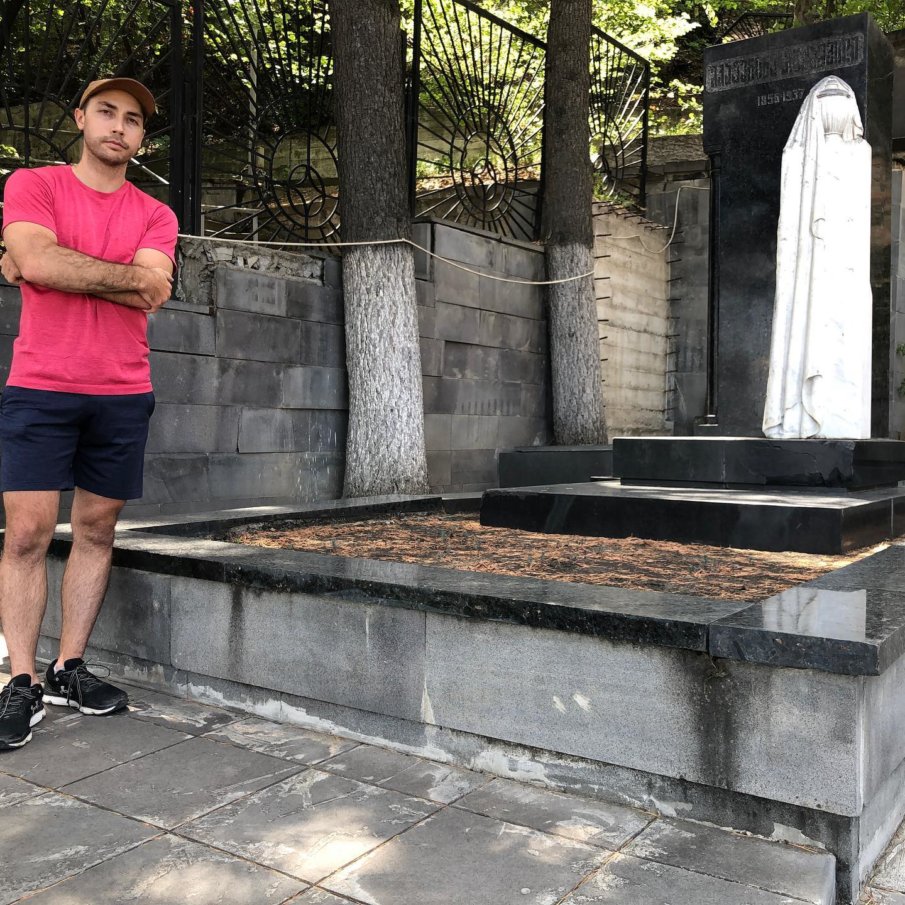I went grave hunting today. Not in the style of Dickens’ minor character Jerry Cruncher, to be clear. My mission was to find the graves of a 19th century Georgian couple whose marriage proved unsuccessful in the end. And so they were of course not buried together. Like most 19th century women, Keke Jughashvili seems to have been the more stable and sane of the pair. That I couldn’t even locate husband Beso Jughashvili’s mass grave site perhaps testifies to his legacy as a deadbeat.
He and Keke had three children, the last child, Loseb Vissarionovich Jughashvili, portentously the only one to survive childhood. Loseb’s father ultimately abandoned the family and became an alcoholic. Keke took a number of menial jobs to support her son and ensure he would attend school, which seems to have been her top priority in life. Loseb did go to school and eventually enrolled in a Georgian seminary. He was a good student, though accounts of classmates suggest he was rebellious. And this trait would indeed define Loseb’s life.
Beso never did accept his son’s disposition. At one point Beso accidentally met his ex-wife Keke as she was on her way to visit Loseb in Batumi prison, where he was temporarily jailed for revolutionary incitement. When Beso saw his ex-wife, he shouted, “Stop, or I’ll kill you! He [Loseb] wants to turn the whole world upside down. If you hadn’t taken him to school he’d be a craftsman; now he’s in prison. I’ll kill such a son with my hands; he’s disgraced me.”
Maybe my historical speculation is way off, but I imagine it would have been for the best if Beso had successfully acted on his instincts to kill his son Loseb Vissarionovich Jughashvili, who we know today as Joseph Stalin.
